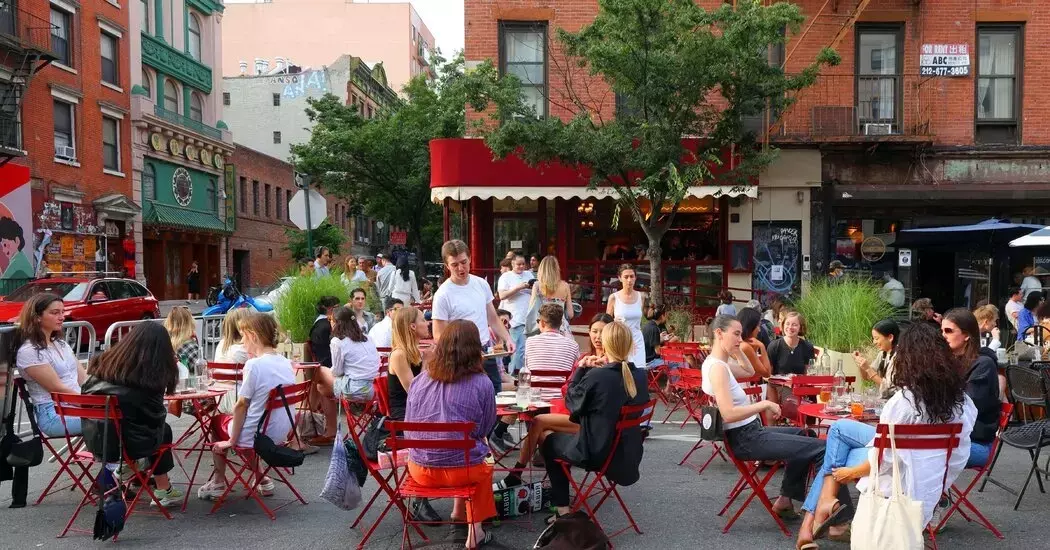
Recently, the New York City Council took an unusual step by voting on a seemingly minor issue—a sidewalk seating permit for a Lower East Side wine bar. This decision, centered around Le Dive's application, may foreshadow stricter regulations in the bustling cityscape. The rejection of this permit, despite community support, signals a shift in how such applications are evaluated. At the heart of this debate lies not only compliance with existing rules but also accountability and trust between local businesses and governing bodies.
In late spring, the spotlight turned to Canal and Ludlow Streets when the City Council convened to deliberate over more than just organic waste collection or blockchain technology—they focused on 18 red bistro chairs outside Le Dive. Typically, permits like these would be processed solely by the Department of Transportation without needing council approval. However, Council Member Christopher Marte decided otherwise, bringing the matter directly before the entire council—an unprecedented move given the endorsement from Le Dive’s community board.
The reasoning behind rejecting Le Dive's application stems from accusations of non-compliance with sidewalk café regulations. According to Mr. Marte, the establishment has repeatedly shown disregard for these guidelines, thereby losing credibility as a responsible participant in the program. Such decisions reflect a broader trend where neighborhoods experiencing rapid cultural shifts face increased scrutiny over their dining setups.
This particular stretch of Canal Street, bridging Chinatown and the Lower East Side, gained fame as "Dimes Square"—a hub attracting trendy, youthful crowds. During the pandemic, relaxed enforcement of dining rules transformed Dimes Square into both a subcultural hotspot and a distinct micro-neighborhood, even briefly earning recognition on Google Maps. As normalcy returns, authorities might tighten reins to ensure order amidst burgeoning popularity.
Beyond Le Dive's case, the citywide conversation surrounding sidewalk seating permits underscores evolving priorities among policymakers. Balancing neighborhood character with regulatory adherence remains paramount. While some areas thrive under lenient oversight, others require stricter measures to preserve harmony. Ultimately, this episode highlights the delicate interplay between entrepreneurial spirit and governmental control within urban settings.
